Understanding the Impact of Therapeutic Support for Children with Autism and Their Families
Mental health therapy plays a crucial role in improving the quality of life for children with autism spectrum disorder (ASD) and their families. Through various structured, evidence-based approaches, these therapies address core developmental challenges, support mental well-being, and foster stronger family dynamics. This article explores the wide spectrum of therapy modalities, mechanisms, strategies, and support services available, illustrating how tailored interventions, parental involvement, community resources, and innovative delivery methods like telehealth come together to enhance outcomes for children with autism.
Diverse Therapeutic Approaches for Autism Support
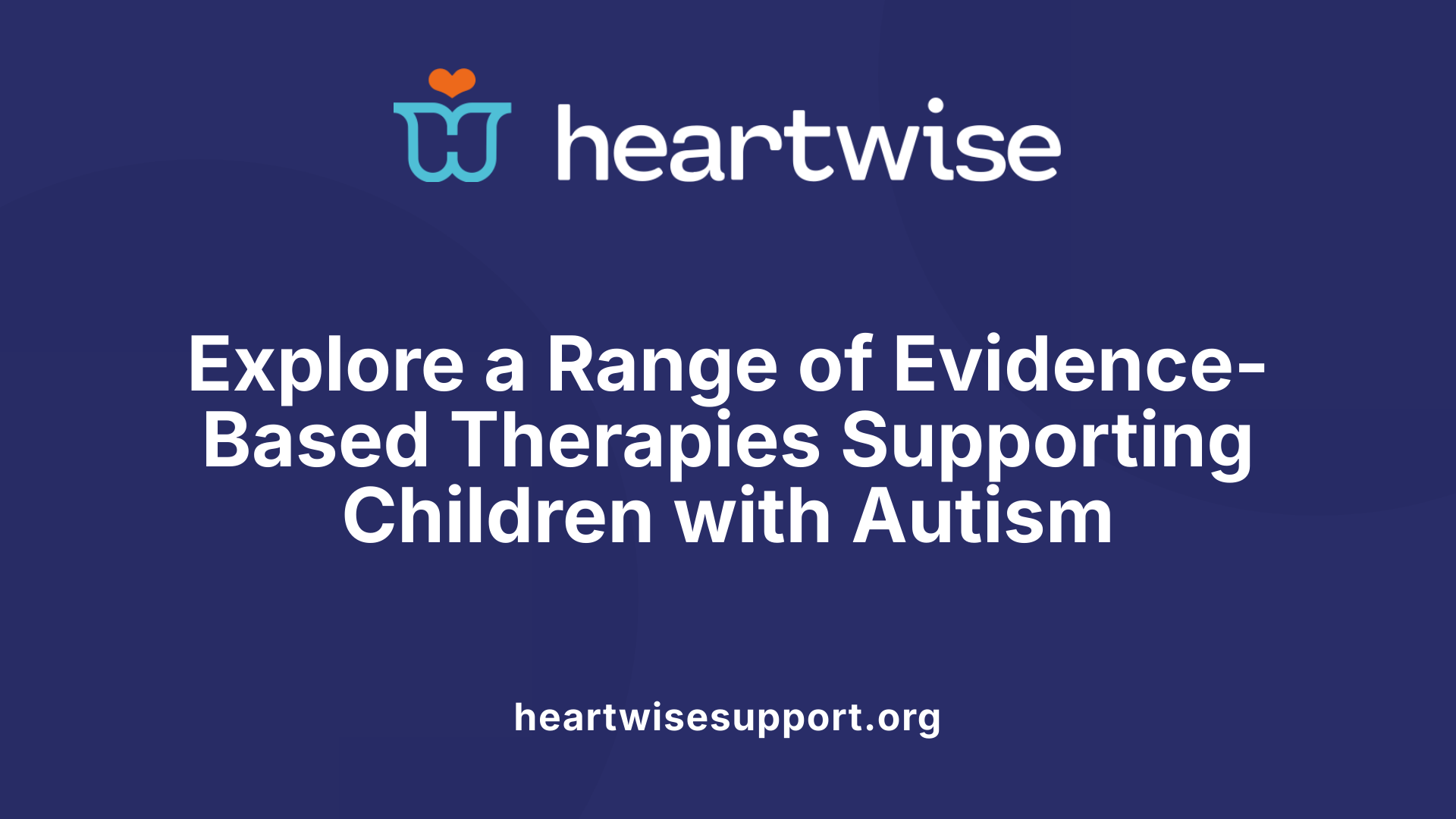
What are the various therapy approaches that support children with autism and their families?
Supporting children with autism involves a wide array of therapies tailored to meet their unique developmental and behavioral needs. Evidence-based practices form the foundation of most interventions, aiming to improve communication, social skills, daily living, and emotional well-being.
Behavioral therapies, especially Applied Behavior Analysis (ABA), are among the most supported approaches. ABA uses reward systems and structured routines to encourage positive behaviors and skill acquisition. Techniques such as discrete trial training, pivotal response treatment, and positive behavior support exemplify ABA's effectiveness.
Speech and language therapy play a crucial role in fostering communication skills, addressing challenges ranging from speech delays to alternative communication methods like sign language or communication devices. Occupational therapy helps children develop independence by teaching vital skills such as dressing, eating, and sensory regulation.
Educational strategies like the TEACCH approach utilize visual instructions, routines, and structured environments to promote learning, particularly in preschool-aged children. Visual supports facilitate understanding and reduce anxiety, helping children thrive through consistency.
On the social-relational front, models like DIR or Floor Time focus on engaging children in play and emotional interactions to build social connections and emotional understanding. Similarly, RDI tasks support social communication and family involvement, aiming to strengthen bonds.
Psychological therapies such as Cognitive-Behavioral Therapy (CBT) are effective in managing co-occurring mental health issues like anxiety and depression. CBT helps individuals recognize and modify unhelpful thoughts and behaviors, promoting better emotional regulation.
In addition to these therapies, a comprehensive support system often includes parental training, early intervention programs, and medical management when necessary. These approaches collectively improve quality of life for children with autism and their families, emphasizing the importance of individualized, multidisciplinary care.
More Information: Search for
Mechanisms and Strategies in Autism Therapeutic Interventions
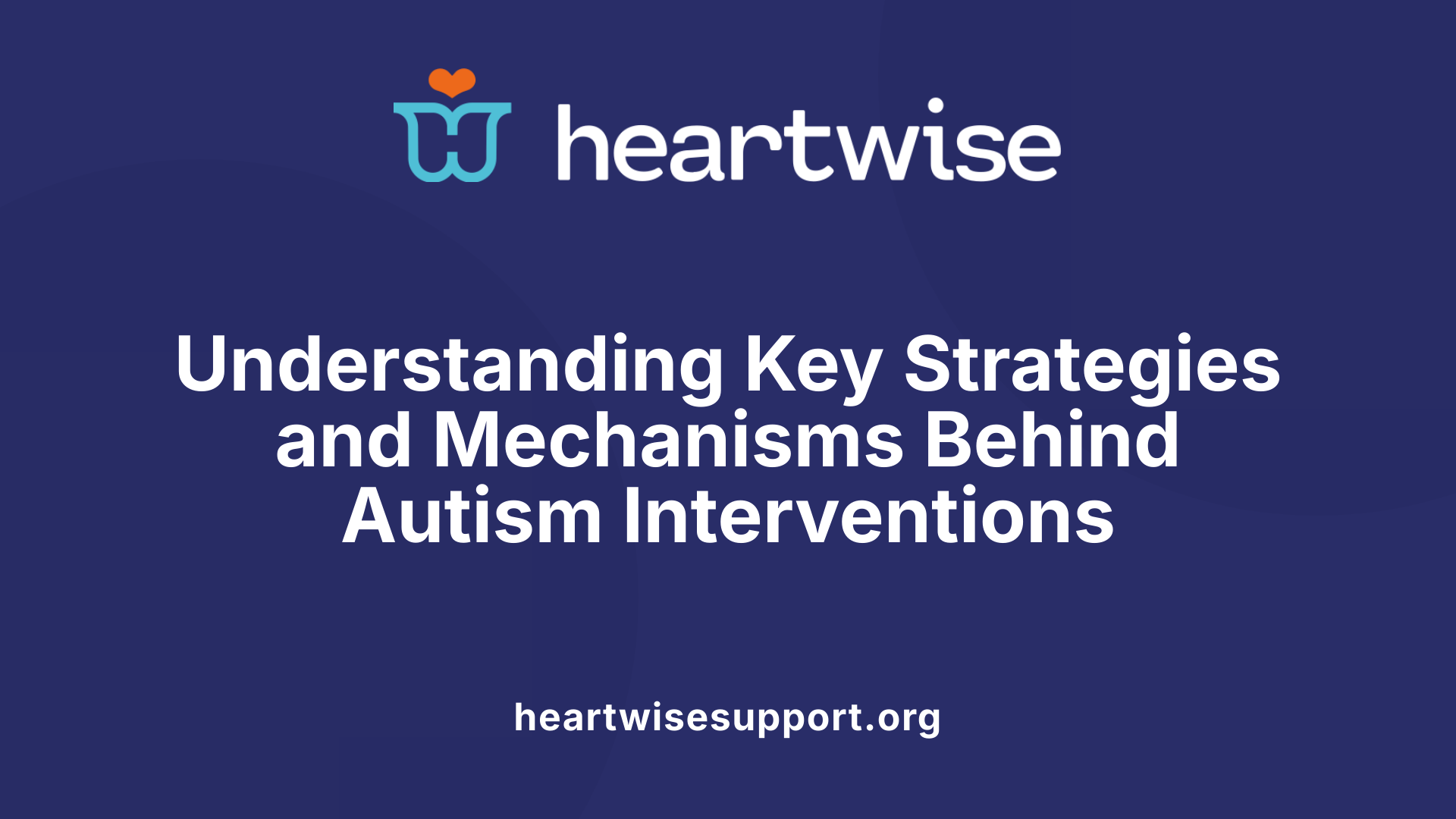
What mechanisms and strategies are used in therapeutic interventions for children with autism?
Treating autism involves a spectrum of approaches designed to support various developmental areas. Behavioral modification, especially through Applied Behavior Analysis (ABA), is one of the most well-supported methods. ABA works by using reinforcement techniques to encourage positive behaviors, such as communication and social skills, while reducing challenging behaviors. It is often highly structured and individualized, involving clear goals and consistent practice.
Developmental models like the Early Start Denver Model (ESDM) and DIR/Floortime focus on fostering social, emotional, and cognitive development through natural interactions. These models emphasize following the child's interests and encouraging play-based learning to build communication and emotional bonds.
Speech and occupational therapies also play crucial roles. Speech therapy targets communication skills, employing various techniques such as visual supports, gestures, sign language, communication devices, and social stories to improve understanding and usage of language. Occupational therapy concentrates on helping children develop daily living skills, motor coordination, sensory integration, and social functioning—enhancing their independence.
Beyond individual therapies, social-relational strategies like social skills groups, RDI (Relationship Development Intervention), and social stories help children improve social understanding. Social skills groups offer structured peer interactions, while RDI promotes emotional connection and flexible thinking. Social stories provide visual narratives that teach appropriate social responses and routines.
While medications do not cure core autism symptoms, they can effectively manage co-occurring issues like anxiety, hyperactivity, or aggression. Combining these strategies in early, consistent, and multidisciplinary programs maximizes developmental progress. Tailoring interventions to each child's unique strengths and challenges remains essential for optimal outcomes.
Benefits of Mental Health Therapy for Children and Families
What benefits does mental health therapy offer to children with autism and their family dynamics?
Mental health therapy plays a vital role in supporting children with autism by enhancing their communication and social skills. Techniques such as social skills training, cognitive-behavior therapy (CBT), and speech-language therapy help children connect more effectively with others, express their needs, and develop friendships.
Additionally, therapy can reduce common challenges like anxiety, behavioral difficulties, and sensory overload. Programs focusing on emotional regulation and coping strategies contribute greatly to the child’s overall well-being. This support allows children to manage stress better, transition smoothly across different settings, and build confidence in their abilities.
For families, engaging in mental health treatments increases understanding and acceptance of autism. It improves parent-child interactions, strengthens communication, and provides families with practical tools to handle behavioral issues. Family-based therapies such as autism family counseling help address stress, emotional strain, and relationship challenges.
Overall, mental health therapy not only supports individual development but also fosters better family relationships. It instills confidence in parents, encourages supportive environments, and helps families adapt effectively to their child's needs, promoting a more harmonious family life.
| Main Focus | Benefits for Children | Benefits for Families | Additional Support Strategies |
|---|---|---|---|
| Communication Skills | Improved speech, gestures, and social interaction | Better understanding of autism and parenting strategies | Speech and language therapy, social stories |
| Emotional Well-being | Reduced anxiety, depression, and frustration | Increased emotional support and shared experiences | Counseling, stress management daily routines |
| Behavior Management | Decreased challenging behaviors and sensory overload | Better family harmony and patience | Behavioral support, positive reinforcement |
| Family Dynamics | Enhanced parent-child bonds and cooperation | Stronger relationships and support networks | Family therapy sessions, peer support groups |
In summary, mental health therapies contribute holistically to improving the lives of children with autism and their families, enabling better communication, emotional health, and family resilience.
The Critical Role of Parental Involvement and Family Support
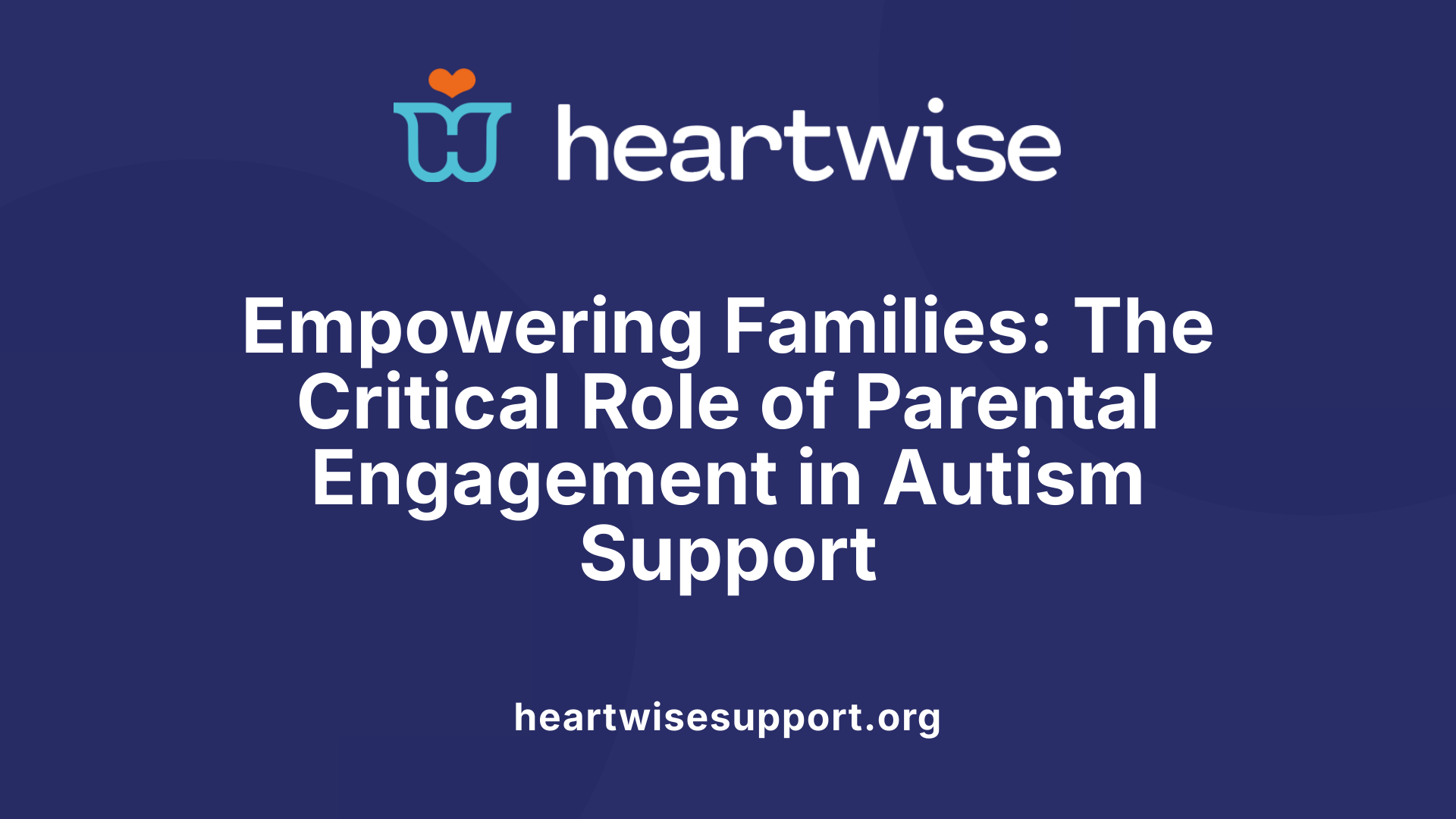
Why is parental involvement and family support considered vital in autism therapy?
Parental involvement and family support are essential in autism interventions because they help ensure that therapy benefits extend beyond clinical sessions into everyday life. When parents actively participate, they reinforce the skills learned during therapy and help children generalize these skills across different environments.
Engaging parents through training and coaching enables them to understand their child's needs better and implement strategies at home, such as visual aids and structured routines. This consistency strengthens the child's progress and promotes sustainable behavioral changes.
Family-centered therapy approaches empower parents with practical resources, emotional support, and education about autism. These approaches can reduce caregiver stress and increase motivation, making the treatment process more effective.
Involving family members also improves social bonds within the household. It helps siblings understand autism better, fostering a supportive and empathetic environment.
Overall, the active involvement of parents and family members amplifies the positive impacts of autism therapies. It creates a collaborative atmosphere that is crucial for lasting success and enhances the child's development across social, communication, and behavioral domains.
How does family support influence the overall outcomes?
Family support acts as a backbone for continuous growth. Support networks such as autism support groups can offer emotional solace, shared experiences, and practical advice. Building these networks helps families not feel isolated and provides access to community resources.
Strengthening family bonds through regular family activities and open communication can boost the child's confidence and social motivation. It also prepares the family to handle behavioral challenges calmly and effectively.
Supporting the mental health of caregivers is equally important. Stress management, counseling, and self-care strategies help parents maintain resilience, which in turn positively affects the child's well-being.
In conclusion, a strong family support system, combined with active parental engagement, creates a nurturing environment that is fundamental to the child's developmental success and emotional health.
Supporting Outcomes and Family Dynamics Through Therapy
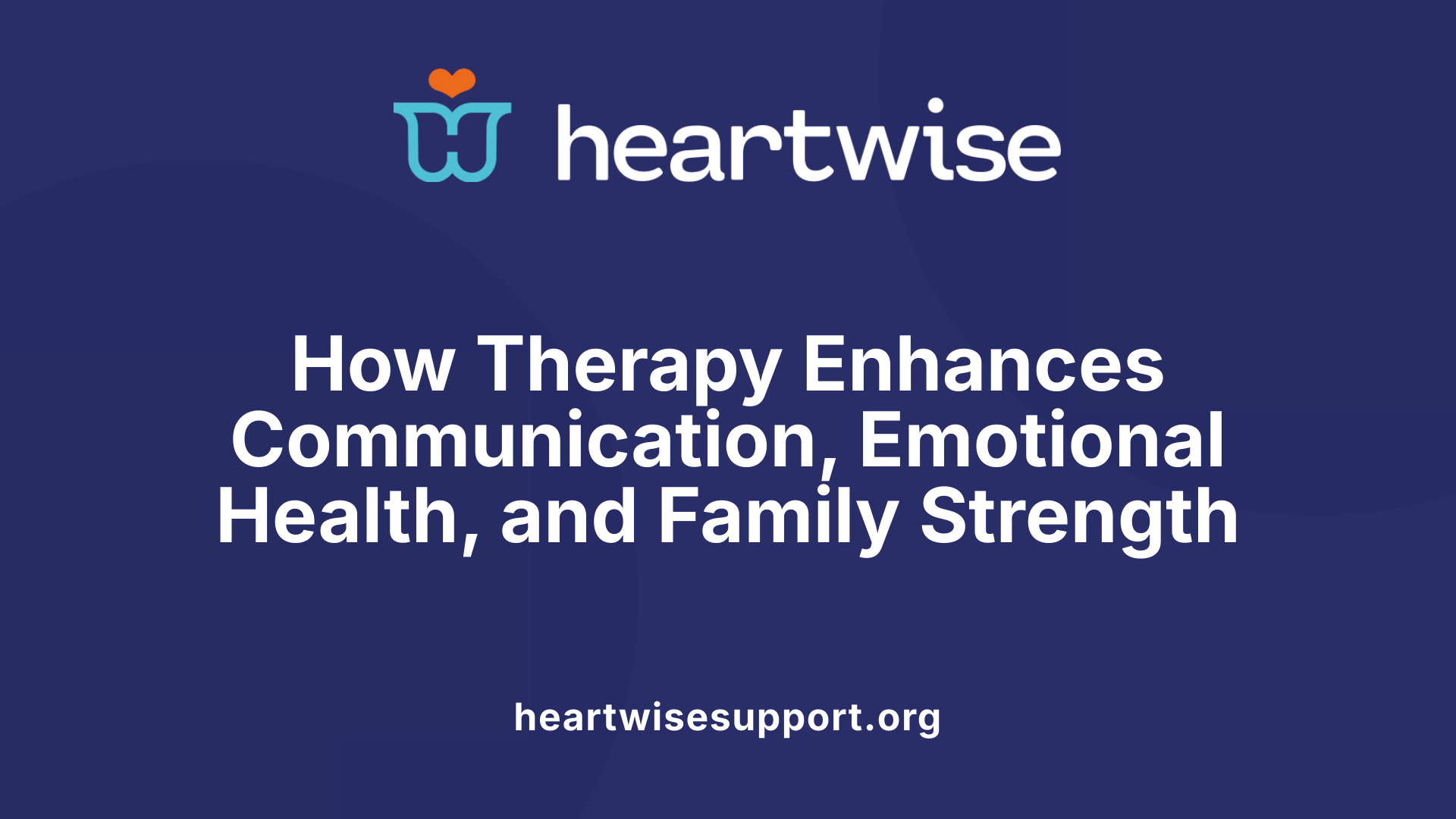
How does mental health therapy support improve outcomes for children with autism and their families?
Mental health therapy support plays a crucial role in enhancing the lives of children with autism and their families. By focusing on improving communication and social skills, therapies help children engage more confidently with peers and caregivers, which can lead to better social integration and emotional balance.
Interventions such as cognitive-behavioral therapy (CBT), social skills training, and anxiety reduction strategies are tailored to meet the unique needs of children with ASD. These approaches often incorporate visual supports, structured routines, and reward systems that align with the child's learning style.
Family involvement is a central element. Support programs that include parents and siblings foster better understanding, communication, and emotional bonds within the family unit. Family-focused therapies also help reduce the emotional and behavioral challenges faced by caregivers, supporting their mental health.
Psychological approaches like mindfulness and stress management techniques equip parents and caregivers with tools to manage stress and emotional burnout. This, combined with consistent support and guidance from mental health professionals, strengthens family resilience.
Effective therapy implementation involves addressing barriers like limited access to trained providers and logistical challenges such as scheduling. Facilitating remote telehealth services and training staff in ASD-specific strategies improve service fidelity and coverage.
Overall, these tailored therapies lead to significant improvements in behavioral, language, and adaptive skills. They also help create a more harmonious family environment, fostering better long-term outcomes for children with autism and their families.
Specific Therapeutic Techniques: Cognitive Behavioral Therapy and More
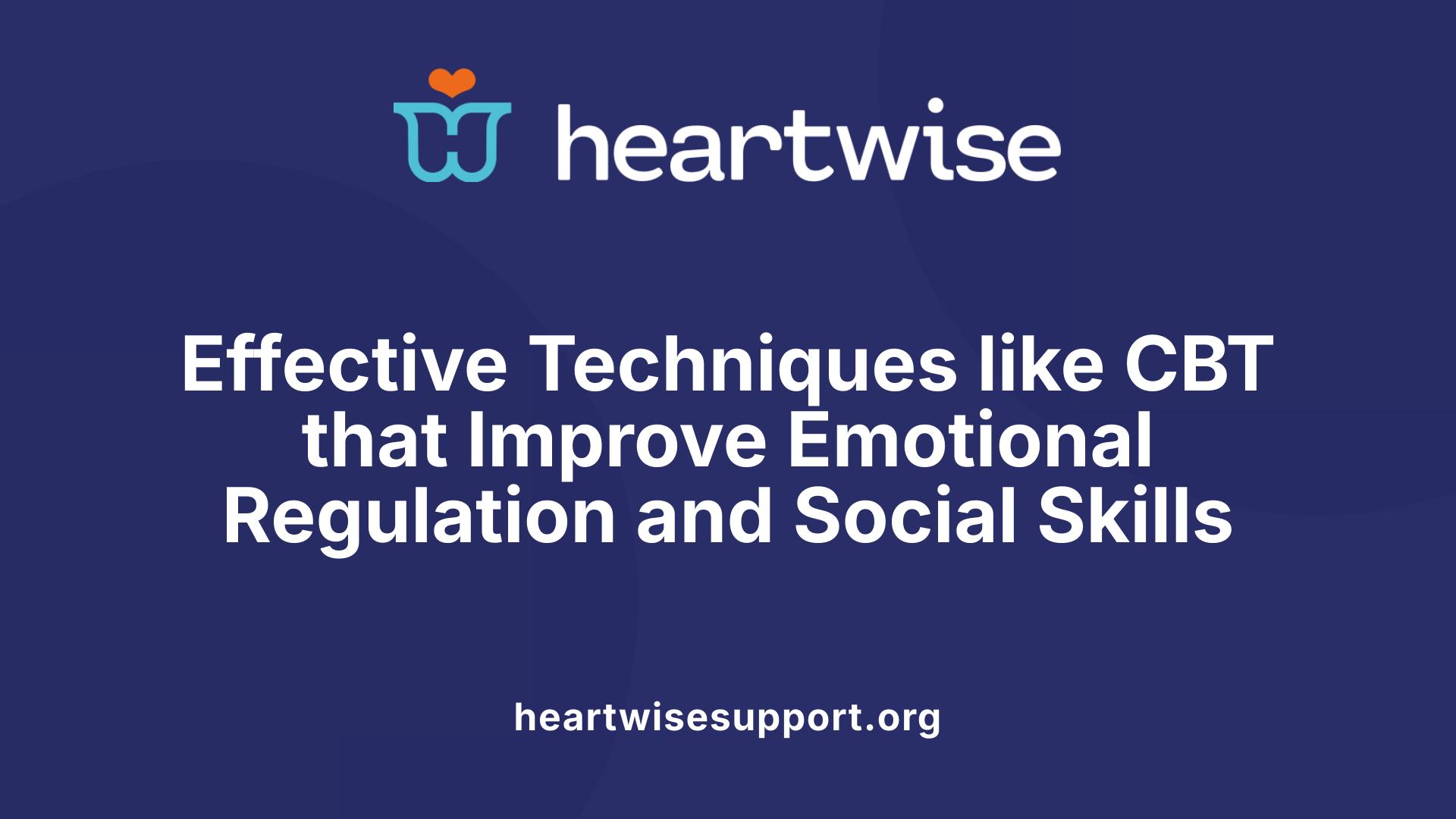
What specific therapeutic techniques, such as cognitive-behavioral therapy, are used with children with autism, and what impact do they have?
One of the most researched and effective psychological approaches for children with autism is adapted cognitive-behavioral therapy (CBT). This method focuses on helping children understand how their thoughts influence feelings and behaviors. Unlike traditional CBT, which may rely heavily on verbal communication, adapted CBT incorporates visual aids, concrete strategies, and techniques tailored to the child's developmental level.
In therapy, children work with clinicians to identify negative or unhelpful thought patterns and learn strategies to manage their emotional responses. The process often involves active participation from parents, who are trained to reinforce skills at home and ensure consistency.
Through these efforts, children develop better ways to cope with anxiety, improve social interactions, and regulate their emotions more effectively. Behavior exercises such as role-playing, social story implementation, and relaxation techniques help reinforce these new skills.
Research strongly supports the use of adapted CBT for reducing anxiety disorders common among children with ASD, enhancing social skills, and promoting emotional resilience. Many parents and clinicians observe noticeable improvements in the child's ability to handle stress, engage socially, and manage challenging behaviors.
Overall, adapted CBT is a flexible, evidence-based approach that addresses mental health concerns secondary to autism while fostering greater social and emotional competence, helping children to navigate daily challenges more successfully.
Current Evidence and Future Directions in Autism Mental Health Therapies
What is the current evidence and research supporting mental health therapies for children with autism?
The most robust research supports using evidence-based behavioral and developmental therapies for children with autism spectrum disorder (ASD). Behavioral approaches such as Applied Behavior Analysis (ABA) have the strongest scientific backing. ABA programs use positive reinforcement to encourage desired behaviors and teach new skills, showing improvements in communication, social interaction, and reduction of harmful behaviors.
Developmental models like the Early Start Denver Model (ESDM) focus on naturalistic interactions to promote social communication and cognitive development from infancy. Speech and language therapy are essential for enhancing verbal and non-verbal communication, while occupational therapy helps children develop daily living skills like dressing, eating, and relating to others.
Research indicates that early diagnosis followed by individualized, intensive intervention leads to better long-term outcomes. Implementing a multidisciplinary approach—integrating behavioral, educational, medical, and family-based strategies—is most effective. Medications such as risperidone and aripiprazole are approved to manage irritability and severe behaviors but do not cure autism itself.
Emerging areas of research include the use of technology such as social robots or virtual reality to improve social skills, dietary interventions, and advances in genetics and biotechnology. These innovative methods, though still under investigation, hold promise for expanding available treatment options.
Overall, current research emphasizes the importance of early, tailored interventions within a comprehensive care model. This multidisciplinary strategy ensures that children receive the most effective support to improve their communication, behavior, and overall quality of life.
| Therapy Type | Evidence Level | Focus Area | Additional Notes |
|---|---|---|---|
| ABA | Strong, well-supported by research | Behavior modification | Used widely for skill teaching and reducing harmful behaviors |
| ESDM | Growing evidence, promising early intervention | Social, cognitive, language skills | Emphasizes natural interactions, suitable for infants and toddlers |
| Speech Therapy | Extensive support, standardized practice | Communication skills | Uses verbal, signs, gestures, and communication devices |
| Occupational Therapy | Widely supported, especially for daily skills | Daily living and motor skills | Tailored to individual needs, enhances independence |
This evidence underscores the importance of combining behavioral, developmental, and medical strategies. As research advances, future therapies may include more personalized genetic or biotechnological options, promising improved outcomes for children across the autism spectrum.
Addressing Challenges for Children, Siblings, and Caregivers
How does mental health therapy address challenges faced by children with autism and their families, including siblings and caregivers?
Mental health therapy plays a vital role in supporting not only children with autism but also their families. For children, therapies such as cognitive-behavioral therapy (CBT), social skills training, and interventions targeting anxiety help improve communication, social interaction, emotional regulation, and overall mental well-being.
In addition to individual support, family-focused approaches are emphasized. Family systems therapy and parent training teach caregivers effective strategies for managing challenging behaviors, promoting positive interactions, and supporting the child's development. These approaches help reduce caregiver stress and foster a more cohesive family environment.
Support groups and psychoeducational programs are also critical. They provide families with coping mechanisms, share experiences, and reinforce understanding of autism, which can help normalize challenges and reduce feelings of isolation.
By implementing evidence-based practices, mental health professionals ensure comprehensive support that builds resilience within families. This integrated approach enhances communication, promotes social growth, and leads to a nurturing environment where both children and their families can thrive.
Fostering a Supportive Environment for Autism Development
By integrating diverse therapeutic approaches with family-centered support and leveraging innovative delivery methods like telehealth, mental health services for children with autism can significantly improve developmental outcomes and strengthen family resilience. A collaborative, multidisciplinary model that emphasizes early intervention, parental involvement, and community engagement is vital. Such comprehensive care not only addresses core developmental challenges but also promotes mental well-being and social inclusion, ultimately empowering autistic children to reach their full potential and fostering healthier, more supportive family dynamics.
References
- Treatment and Intervention for Autism Spectrum Disorder - CDC
- Nurturing the Positive Mental Health of Autistic Children ...
- Prioritizing Mental Health in Families with Autistic Children
- How Autism Family Counseling Can Support Your Family
- Autism spectrum disorder - Diagnosis and treatment - Mayo Clinic
- Supporting Families With Autistic Children | Psychology Today
- Family Autism Therapy & Counseling | Cortica Care Model
- How to identify and support autistic children at risk of mental health ...
- The Mental Health of Families with Autistic Children - TecScience
- Parent Involvement in Mental Health Treatment for Autistic Children











